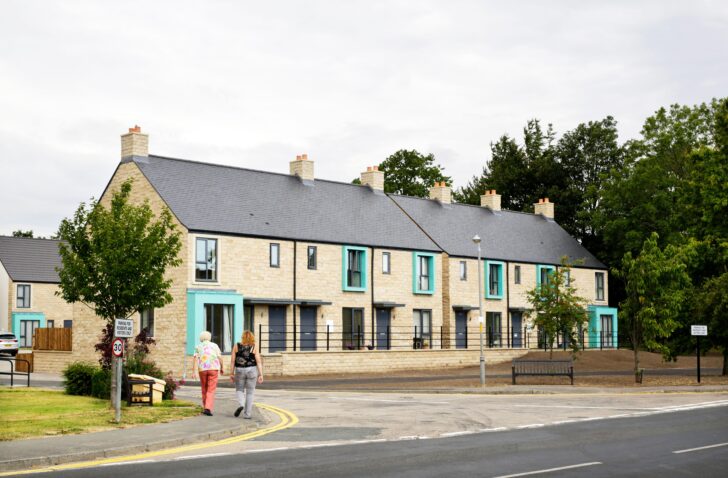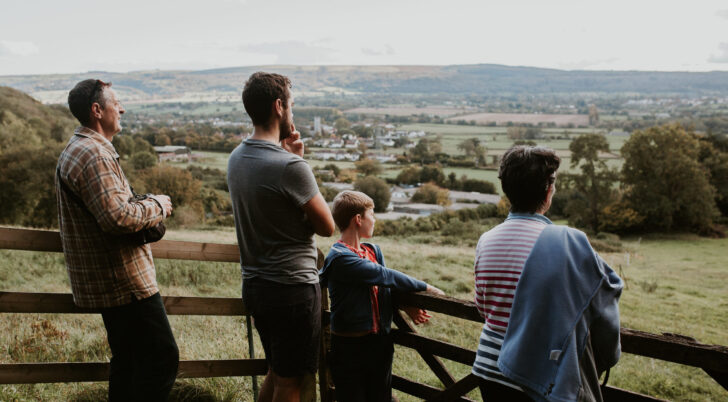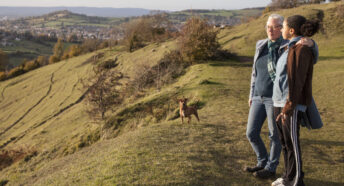Liberal Democrats manifesto: CPRE analysis
The Labour, Conservative and Liberal Democrat manifestos have now been published. But will they deliver for our countryside and rural communities? Keep reading to find out how much the Liberal Democrat manifesto aligns with our own manifesto asks.
CPRE have issued a manifesto calling for 16 policies that we want the next government to deliver, and below you’ll find an overall summary of the Conservative manifesto in terms of how it shapes up as compared to our own. Manifestos are not an exhaustive list of all a political party’s policies. With this in mind, we have contacted the parties about our analysis and asked for further clarification on missing areas.
The following is only an analysis of the major party’s manifestos against our own manifesto asks. CPRE remains politically neutral and is not encouraging people to vote for any specific party.
Our manifesto for the countryside
The next government will be faced with tackling the climate emergency, ecological collapse, high costs of living, widening inequality in the housing market, and ensuring food and energy security. The countryside is vital for our country’s future, and the climate and nature crises will have enormous implications for how we use our land.
Our manifesto sets out a route towards creating thriving rural communities and resolving the pressures on our countryside, and calls on all political parties to recognise the value of the countryside and its essential role in answering our nation’s challenges. In the analysis below, we will list the sixteen policies in our manifesto and consider how the party manifestos shape up in comparison.
Summary
For those in a hurry, we can save you a bit of time and give you a summary of the Liberal Democrats manifesto in terms of how it shapes up as compared to CPRE’s. With measures to tackle short term lets, move away from hope value and improve social housing delivery, the manifesto is reasonably closely aligned with our own, though we would like to see a commitment to redefine ‘affordable’ to tackle a key root cause of the crisis. In terms of the Green Belt and countryside, there are some ambitious and welcome commitments to a ‘Wild Belts’, alongside restoring and protecting woodland, and creating a new ‘National Nature Park’ designation. However there’s little on Green Belt policy, and little on improving access to nature close to our towns and cities.
Although there’s little in the manifesto about an explicit rooftop-first approach to solar, there are some encouraging targets on clean energy as well as strong commitments to make rooftop solar mandatory for new builds and more affordable for communities. In terms of planning, it is pleasing to see commitments to a Land and Sea Use Framework as well as a host of measures to ensure communities can shape planning in their area. However, we’d like to see more a more robust brownfield-first approach, as well as nature and net zero targets baked into local plans.
Fixing the broken housing market

A healthy home is the foundation for a decent life. In summary, our manifesto calls for:
- 1) Redefining ‘affordable’ in line with local incomes not market rates
- 2) Setting new targets for new social and genuinely affordable housing
- 3) Abolishing hope value to get more social housing built
- 4) Tackle short-term lets in rural hotspots
1) Redefining ‘affordable’
CPRE:
Liberal Democrats:
The Liberal Democrats manifesto does not mention the definition or redefinition of ‘affordable’ housing which we have been calling for. We would have preferred for this to explicitly included; however, they have promised to prioritise the delivery of social housing which have a similar practical effect as our policy ask. In their 2023 ‘Tackling the Housing Crisis’ policy that they “will link Local Housing Allowance to the real level of local rents, ensuring that it will cover rents in the bottom third of the local housing market.”
2) Social and affordable housing targets:
CPRE:
Liberal Democrats:
The manifesto mentions:
- ‘Increasing building of new homes to 380,000 a year across the UK, including 150,000 social homes a year, through new garden cities and community-led development of cities and towns.’
- ‘Encouraging the use of rural exception sites to expand rural housing.’
We are pleased to see the inclusion of a specific social homes target as well as reference to the increased uptake of Rural Exception Sites. In this regard, we feel this policy ask is addressed thoroughly.
3) Hope value
CPRE:
Liberal Democrats:
The manifesto mentions:
- ‘Allowing councils to buy land for housing based on current use value rather than on a hope-value basis by reforming the Land Compensation Act 1961.’
Hope value was specifically referenced with a feasible policy solution.
4) Short term lets
CPRE:
Liberal Democrats:
The manifesto mentions:
- ‘Give local authorities new powers to control second homes and short-term lets in their areas by: (1) Allowing them to increase council tax by up to 500% where homes are being bought as second homes, with a stamp duty surcharge on overseas residents purchasing such properties. (2) Creating a new planning class for these properties.’
- Liberal Democrats are committed to tackling these housing failures head-on by […] creating a national register of licensed landlords”
We were pleased to see the reference to tackling short term lets and second homes in rural areas, since increased council tax on second homes and creating a new planning class will have a positive impact in this regard. While there is reference to a register of landlords, more could have been done by including a register for second homes and short term lets.
Recognise the importance of the countryside next door

The countryside next to our towns and cities provides millions with health and happiness. In summary, our manifesto calls for:
- 1) Championing and enhancing Green Belt land
- 2) Creating new woodlands and wetlands near urban areas
- 3) Creating a new generation of country and regional parks
- 4) Increasing access to the countryside next door
1. Championing and enhancing green belt land
CPRE:
Liberal Democrats:
There is no reference to the Green Belt policy within the manifesto. There is mention of creating a ‘Wild Belt’: “Empowering Local Nature Recovery Strategies to identify a new Wild Belt for nature’s recovery” which would deliver some benefits. Within the 2023 policy paper, Tackling the Nature Crisis, there is more detail on this which aims to enhance protections of the Green Belt for nature: “We will ensure that the planning system is nature-positive. We will create a new ‘Wild Belt’ programme, connected by wildlife corridors. It would improve the environmental condition of the existing greenbelt.”
2. Creating woodlands and wetlands near urban areas
CPRE:
Liberal Democrats:
The manifesto mentions:
- ‘Doubling the size of the Protected Area Network, doubling the area of most important wildlife habitats, doubling the abundance of species and doubling woodland cover by 2050.’
- Plant at least 60 million trees a year, helping to restore woodland habitats.’
There are specific goals to restore and protect woodlands which is welcome, but there is no reference to wetland areas or the proximity of these target areas to urban populations within the manifesto.
There is more detail on nature plans, including creating new wetland areas in the 2023 policy paper, Tackling the Nature Crisis. Within the paper there is also reference to proximity to nature for urban areas: “Woodland, wildflower meadows and other habitat creation near to urban centres can help everyone benefit from nature, while improving flood prevention and air quality. These will be
3. Creating a new generation of country and regional parks
CPRE:
Liberal Democrats:
The manifesto mentions:
- ‘Significantly increasing the amount of accessible green space, including protecting up to a million acres, […] and creating a new designation of National Nature Parks.’
We were pleased to see specific reference to National Nature parks. The commitment to improving access to nature for urban populations was laid out within the 2023 policy paper, Tackling the Nature Crisis: “woodland, wildflower meadows and other habitat creation near to urban centres can help everyone benefit from nature, while improving flood prevention and air quality”.
4. Increasing access to the countryside next door
CPRE:
Liberal Democrats:
The manifesto mentions:
- ‘Significantly increasing the amount of accessible green space, including protecting up to a million acres, completing the coastal path, exploring a ‘right to roam’ for waterways and creating a new designation of National Nature Parks.’
- Boost bus services by giving local authorities more powers to franchise services and simplifying funding, so that bus routes can be restored or new routes added where there is local need, especially in rural areas.’
There is a thorough policy for rural bus services which is welcomed. There is reference to increasing green spaces within the manifesto as well. The commitment to improving access to nature for urban populations was laid out within the 2023 policy paper, Tackling the Nature Crisis: “woodland, wildflower meadows and other habitat creation near to urban centres can help everyone benefit from nature, while improving flood prevention and air quality”.
Start the rooftop renewables revolution

To protect nature and our treasured landscapes, we should be using more rooftops to revolutionise how the sun can meet our energy needs. In summary, our manifesto calls for:
- 1) A target of 60% solar to be on rooftops
- 2) Making rooftop solar the norm on new buildings
- 3) Making rooftop solar more affordable for people and communities
- 4) Employ a ‘roof-first’ approach to solar
1. Rooftop solar targets
CPRE:
Liberal Democrats:
The manifesto mentions:
- ‘Invest in renewable power so that 90% of the UK’s electricity is generated from renewables by 2030.’
There is no reference to a solar energy target specifically. However, we note that 90% is an ambitious target which is positive.
2. Making rooftop solar the norm on new buildings
CPRE:
Liberal Democrats:
The manifesto mentions:
- ‘Immediately requiring all new homes and non-domestic buildings to be built to a zero-carbon standard, including being fitted with solar panels, and progressively increasing standards as technology improves.’
We are really pleased to see this commitment which meets our manifesto ask well.
3. Making rooftop solar more affordable for people and communities
CPRE:
Liberal Democrats:
The manifesto mentions:
- ‘Drive a rooftop solar revolution by expanding incentives for households to install solar panels, including a guaranteed fair price for electricity sold back into the grid.’
- ‘Requiring all new homes and non-domestic buildings to be built to a zero-carbon standard, including being fitted with solar panels’
- ‘Guaranteeing that community benefit funds receive a fair share of the wealth generated by local renewables infrastructure.’
- ‘Introducing a new subsidised Energy-Saving Homes scheme, with pilots to find the most effective combination of tax incentives, loans and grants, together with advice and support.’
Overall there is plenty on making energy and bills more affordable, and it is positive that there is commitment to a ‘rooftop revolution’ but this would be stronger if there were specific policy proposals to make solar panels specifically more affordable.
4. Employ a ‘roof-first’ approach to solar
CPRE:
Liberal Democrats:
It is disappointing to see no reference to a rooftop first approach of ground-mounted solar.
Reform the planning system to serve both people and planet

Our planning system needs fresh thinking. In summary, our manifesto calls for:
- 1) A long-term vision for land use across England
- 2) Integrating targets for the evironment and nature into planning policy
- 3) Prioritising urban regeneration to reduce pressure on the countryside
- 4) Make community voices count in what-goes-where decisions
1. A long-term vision for land use across England
CPRE:
Liberal Democrats:
The manifesto mentions:
- ‘Introducing a strategic Land and Sea Use Framework to effectively balance competing demands on our land and oceans.’
There is specific reference to a new land use framework which is reassuring. More detail was included within the 2023 policy paper, Tackling the Nature Crisis “We will develop a national land use framework, informed by a comprehensive map of important habitats. Our framework would support better choices in the way we use our scarce land resources, combining local preferences with national objectives to ensure that the most important places are prioritised for climate and nature, while making plenty of space to grow healthy and nutritious food for people”.
2. Integrating targets for the environment and nature into planning policy
CPRE:
Liberal Democrats:
The manifesto mentions:
- ‘Make planning work for our natural environment and ensure that developers pay their fair share by:
- (1) Ensuring new developments result in significant net gain for biodiversity, with up to a 100% net gain for large developments.
- (2) Introducing a strategic Land and Sea Use Framework to effectively balance competing demands on our land and oceans.
- (3) Empowering Local Nature Recovery Strategies to identify a new Wild Belt for nature’s recovery.’
It is encouraging that there is reference to compulsory Biodiversity Net Gain targets for developments. However, we would like to see inclusion of mandatory net zero or biodiversity targets in local plans.
3. Prioritising urban regeneration to reduce pressure on the countryside
CPRE:
Liberal Democrats:
The manifesto mentions:
- ‘Encouraging development of existing brownfield sites with financial incentives and ensuring that affordable and social housing is included in these projects.’
We welcome the specific reference to brownfield sites, but we would argue that the use of the word ‘encourage’ rather than ‘require’ is not strong enough for an effective brownfield-first strategy.
4. Make community voices count in what-goes-where decisions
CPRE:
Liberal Democrats:
The manifesto mentions:
- ‘Build the homes people desperately need, with meaningful community engagement, by:
- Expanding Neighbourhood Planning across England […]
- Properly funding local planning departments to improve planning outcomes and ensure housing is not built in areas of high flood risk without adequate mitigation, by allowing local authorities to set their own fees.
- Trialling Community Land Auctions to ensure that local communities receive a fair share of the benefits of new development in their areas and to help fund vital local services.
- Introducing ‘use-it-or-lose-it’ planning permission for developers who refuse to build.
We were pleased to see several proposals to maintain and improve community engagement in the planning system. Specific reference to expanding neighbourhood planning is also good to see.
Beyond CPRE’s manifesto
Beyond CPRE’s manifesto, it is also worth noting that we welcome the emphasis on rural communities and the commitment to ‘appoint a cross-departmental Minister for Rural Communities, to make sure that rural voices are heard across government.’ This would be a really positive change for the countryside.










